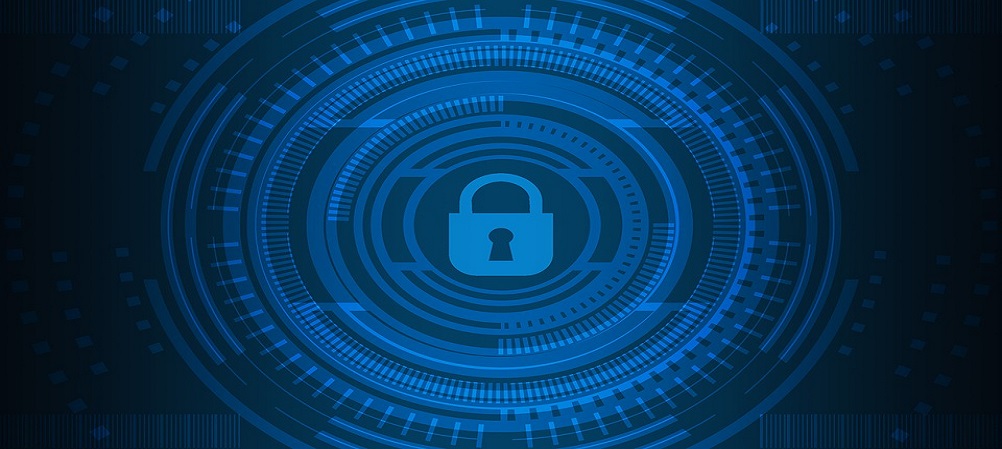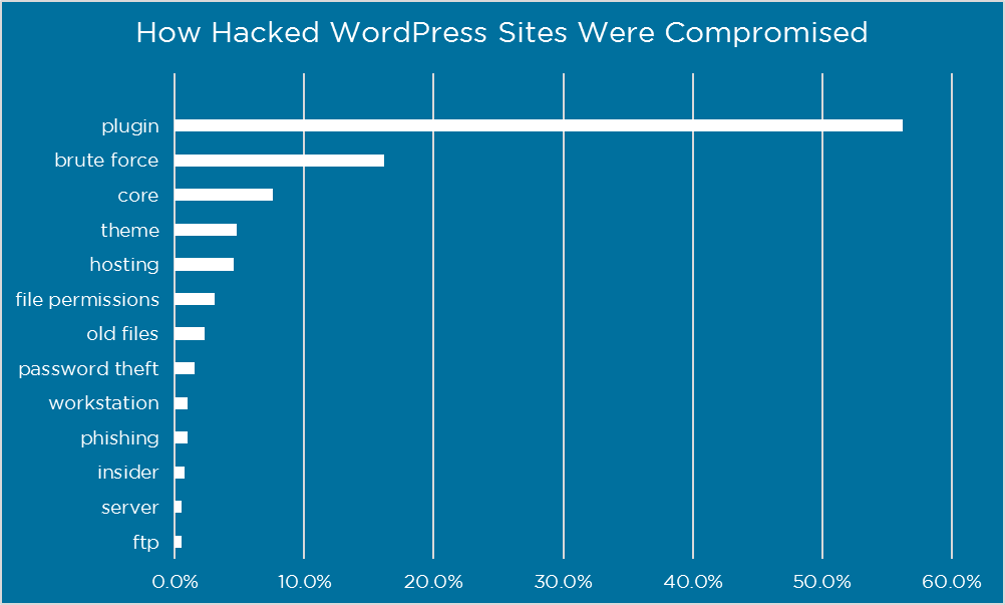A Data Breach Investigation Report by Verizon reveals that small businesses account for nearly 60 percent of cyberattacks. Small business owners and entrepreneurs possess limited expertise to implement effective cybersecurity measures. Also, most businesses operate on a shoestring budget, leaving little or no funds for cybersecurity. This makes them small businesses a favorite target of cybercriminals.
Cyber attacks can be detrimental not only to your reputation and bottom-line but also to your site’s organic search performance. A compromised site places your business in the search engines’ penalty box, causing your website traffic to plummet. Moreover, once hacked, sites take months to get back in business.
Businesses rely on high search rankings for online reputation and profits. They often implement the most effective SEO tactics, from link building to great content marketing, to land up on the front page of Google search. But besides offering the best content to its audience Google also lays emphasis on making the internet a safe place.
Search engines value user experience and want to offer nothing but quality information to their users. Hence, cybersecurity and SEO go hand in hand towards building a firm’s online reputation.
Read on to know how cybersecurity can affect your site’s SEO and what you can do to armor up against the cybercriminals who are always on the prowl.
How Cybersecurity Affects Your Site’s SEO
Google and other search engines are paying a lot more attention to cybersecurity when it comes to their ranking algorithm. As ironic as it sounds, when your website gains popularity among your target audience it is awarded a higher rank. However, this popularity makes it an ideal target for hackers.
If your site gets compromised, your customers will never want to return to it. This is especially true for ecommerce businesses as their website holds a lot of sensitive information, such as credit card data that can be misused.
A website hack can have a permanent impact on your website’s SEO. Let’s see how.
1. A Compromised Site Attracts Search Engine Penalties
Search engines like Google and Bing check websites for phishing attacks, malware, and unwanted software that can put sensitive user data to risk or negatively affect user experience. When they find a 503 or 404 error on the webpages, they are overcritical of it and punish the site.
For instance, when Google detects hacks, DDoS attacks, or ransomware, it issues Manual Actions to the website, impacting its ranking and even taking it off the internet.

Thus, when your potential customers look for your business website, they will either not find your site or see a search engine warning, dissuading them from visiting your website. The revenue you lose from this downtime can be ruinous for your small business.
What’s scarier is when an infected site is not flagged by the search engines. A small business website security report by GoDaddy shares that this happens in 90 percent of the cases, posing a risk of the website being attacked without the knowledge of the business owner. This increases the site’s susceptibility to hackers, hampers the rankings, and leads to stricter penalties.
Finally, search engines have made SSL certificate status as one of the important factors in their ranking algorithms. If your site does not have an SSL certificate, the visitors’ sensitive information is not encrypted, making your site unsafe for transactions.
2. Malicious Bots Interfere with the Search Engine Crawling
Search engines use bots to collect certain ranking parameters on website pages and index them. However, Googlebots and Bingbots are not the only ones crawling your site. Bandit bots like scrapers, hacking bots, spammers, and click fraud can crawl your site for content scraping and data theft, negatively affecting your SEO ranking.
For instance, nefarious bots crawling websites for content scraping copy the site content and publish it elsewhere. You very well know that earning a high rank in SERP hugely depends on the quality and authenticity of the site content. If search engines find the duplicate content on other sites before yours, they will obviously award a higher rank to the other site, negatively affecting your online standing.
According to the 2019 Bad Bot Report, nearly 20 percent (compared to 6 percent in the previous year) of the bots crawling our sites with malicious intent.
These nefarious bots can interfere with the search engine crawling, thereby throttling your site traffic altogether. If you encounter a 404 or 503 error for a few webpages on Google Search Console, chances are that these bots have prevented search engine bots from crawling the site. Thus, your server stops serving these web pages, thereby reducing the effectiveness of your SEO.
3. SEO Spam Is Rampant
More than half of the malware attacks on websites are performed by black hat SEOs and hackers who want to improve their own site ranking. These spammers target sites with prominent search engine rankings and insert links or use JavaScript redirects to direct the visitors to their malicious sites. SEO spamming or spamdexing allows hackers to push low-quality content on high-ranking sites, allowing them to push up their rankings.
SEO spam can have the following negative consequences for a business.
- The site may get blacklisted by search engines.
- The spammy outbound links will reduce the website’s rankings.
- Spammy content will frequently appear on the site when people visit it, damaging business reputation.
What Can You Do?
Improving your site’s ranking while keeping it safe from the online predators is the primary for all businesses. Focusing on SEO and cybersecurity together can help you achieve these objectives, steering your small venture towards success.
Stay ahead of the game by implementing the valuable tips shared below.
Know the Early Warning Signs of a Cyberattack
Spammers and hackers with malicious intent can exploit the vulnerabilities in your website security system, causing your website to behave awkwardly. Stay one step ahead of them by looking out for the following warning signs of a cyberattack.
Google Alerts and Notifications
If you have been alerted by Google or see a ‘Site Not Accessible’ warning in the search results, it’s a sign that your site is hacked. To confirm this fact, register your site in Google Search Console, go to the Security Issues section, and look for the hacked URLs that Google has detected.
Presence of Strange JS Code
Suspicious JavaScript code is often used by hackers to take charge of sensitive information like credit card data or passwords on your site. If you find any such strange-looking code in the source code of your website, get rid of it immediately.
Your Login Credentials Don’t Work
If the system shows the ‘Invalid Password’ message when you enter your login information, it’s a sure shot sign that your password has been changed by hackers.
You Get Frequent Random Popups or Error Messages
Often hackers use cross-site scripting or inject malicious code into the website code to bypass its security system. This often causes popups, error messages, and spammy ads to appear. So, if you come across such unexpected and suspicious messages, it’s time to run a scan for malicious software.
Make Security Audits a Part of Your SEO Strategy
Search engines penalize sites that do not take effective measures to protect their users with poor SERP rankings. Hence, it’s advisable to make cybersecurity an important part of your SEO strategy. Further, performing periodic web security testing will ensure your website is safe against malware attacks that cause SEO spam.
Don’t just depend on Google’s safe browsing alerts and notifications. Take a proactive step to understand and monitor your web security system. This will help you detect threats that can damage your website and its SEO ranking.
Besides involving your IT team, hire an external web security professional who is experienced and holds a master’s certificate in cybersecurity. Only a qualified expert can help you identify the vulnerabilities in the system and build a pre-emptive cyber defense strategy to protect your business.
Alternatively, paid online services like WebsitePulse and SiteLock can monitor your website and notify you when they come across a suspicious activity.
3. Harden WordPress Security
WordPress powers 34 percent of websites around the world. This makes it the largest CMS and an ideal target for malicious hackers. In fact, WordPress security vulnerabilities extend beyond the WordPress core.
Statistics reveal that plugins contribute to 57 percent of WP security vulnerabilities.
If you are using WordPress for your business website, it’s critical to check your plugins and themes at regular intervals. Make it a habit to use strong passwords and update WordPress core, themes, and plugins. Further, install plugins and themes from reputable sources like the WordPress.org repository.
4. Use Effective Malware-Scanning Tools
Get rid of the malicious content from your website using a file-based malware scanner. This scanner accesses the website code to check the webpages for malicious software or an unexpected PHP or HTML file around your server. Invest in a malware scanner like Sucuri Sitecheck or Web Inspector to prevent your site from being blacklisted and maintain your search engine rankings.
Moreover, open-source web analytics reporting tools like AWStats can scan through your log files to detect suspicious activities. This tool offers data on every bot that has crawled your site, the bandwidth consumed, the date of the last crawl, and the total number of hits, enabling you to detect malicious activity.
For instance, bot bandwidth usage does not exceed a few megabytes per month. However, if you have thousands of page visits from a single IP address in a short span of time (as in the case of malicious bots), the available bandwidth will get choked.
Lastly, use tools like Ahrefs and Majestic to check your backlink profile. These tools will not only help improve your site’s SEO but also track superfluous backlinks from SEO spammers.
Going Forward
Compromised web security can significantly affect your firm’s profitability, customer base, and reputation. In fact, detecting a malware attack or data breach itself can take months or longer. Your website’s ranking will be adversely affected during this phase, without you knowing the exact cause. In such a case, all SEO strategies you use to rank high will prove to be futile. Therefore, it is important to follow the security best practices shared in this post to protect your site and detect a cyber attack as quickly as possible.
Is cybersecurity a part of your firm’s SEO strategy? If not, it’s high time you get your SEO and IT team together to build a foolproof strategy that boosts your rankings while upholding your site’s security.


